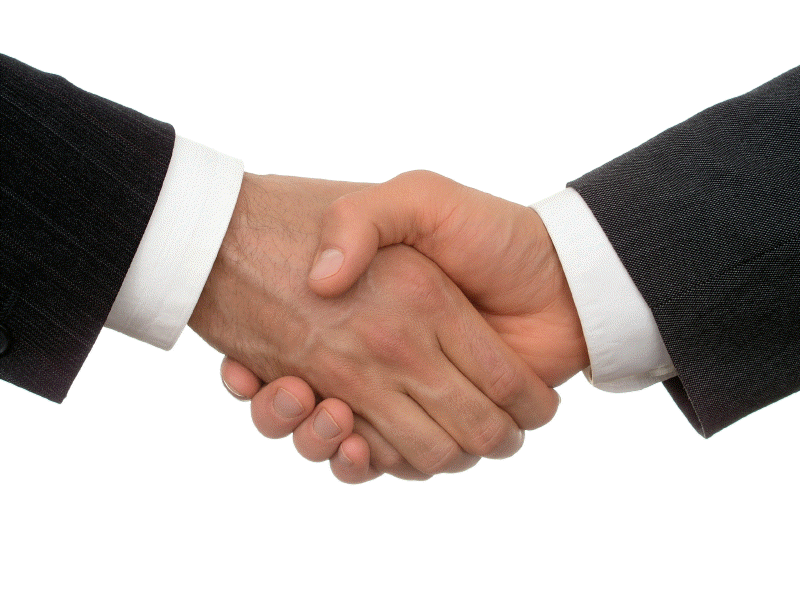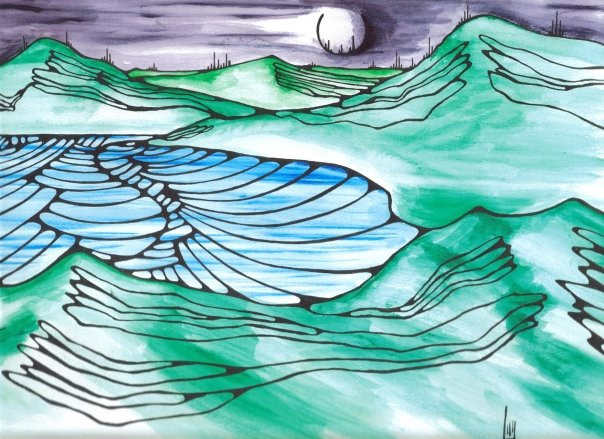
Invisible disability: small gestures and big impressions
Artist Tiffanee Griffiths talks to Disability Horizons about how her invisible disability has affected her work and how something like a small, socially accepted, handshake can have such an impact.
My name is Tiffanee Griffiths and I am an artist from the Interior of British Columbia, Canada. I have not always been disabled but I have always been an artist. An attack in 2009 left both of my hands badly broken, changing my art forever.
Looking through my portfolio you can see my progression, as I have learned to hold my paintbrush again.
I will never draw the same smooth lines that I prided myself on prior to my injuries, and that has been the most difficult thing to come to terms with. I am learning to accept what I am able to do with my hands and how there will be frustrating challenges with small everyday tasks; opening pickle jars, turning round door knobs, the list goes on. But life is all about accepting, adapting and carrying on.
My disability can be categorised as an ‘invisible disability’; if you were to meet me, you would never know that I am ‘disabled’ unless I told you, and I never feel comfortable explaining how I’m ‘broken’ on an initial introduction. This brings me to my topic; shaking hands.
Why is shaking hands such an accepted social obligation? And how do I respectfully decline shaking someone’s hand without offending them?
My issue with shaking hands stems not from the fear of germ spreading or clammy hands, but rather the pain when a firm handshaker grips and squeezes, right where I have four pins holding a steel plate. OUCH!
Usually I try not to flinch and yank my hand away for fear that questions would follow, and then the apologies for not knowing. Honestly, it’s just easier when I can get through an important meeting without having to tell my story and getting that look of pity. Oh how I despise that look of P.I.T.Y.
This is the very embarrassing issue that I am faced with on a regular basis; to shake, or not to shake. How can I leave a positive lasting impression without coming off… weird?
I was always a firm hand shaker; I was brought up believing that a good handshake is the sign of good character. Now I extend my hand shyly, wincing every time.
In 2010, I visited Vancouver for a second opinion on my injured hand. I was referred to a hand specialist who is highly recommended throughout the medical world. While waiting to be called I was oddly both anxious and excited to see just how this ‘hand doctor’ would extend his hand to me.
When my name was called niceties were exchanged and he offered his hand, but not in the traditional right-hand-out-vertical-with-thumb-up way. He instead held his hand out like a C, still sideways but cupped, and he gently lifted my hand up while covering it with his other. It was wonderful! So gentle, so majestic; I almost blushed.
I went away from the appointment with an understanding of what ‘honoured to make your acquaintance’ must have been like back when ladies were ladies and gentlemen were easier to find.
Now, two years later, I still smirk when I think of how that old Dr. had made me almost blush. It’s funny how such a soft handshake, a small gesture, can make such a big impression. It just goes to show that it pays not to assume, to instead be thoughtful in the way we approach such accepted ‘norms’.
Now, if I can just figure a way to put my hand out without looking like I’m expecting it to be kissed! Another awkward observation I’m sure to have an opinion on in the future 😉
By Tiffanee Griffiths
Check out…
• Invisible vs visible disabilities: differing disabilities, one community.
• Viewing disability and difference through the eye of a lens.
• The art of perseverance and creativity.
Don’t forget to get in touch by emailing us at editor@disabilityhorizons.com, tweeting us @DHorizons or sending us a message on Facebook.


Hi Tiffanee!
Thank you for sharing your story & your beautiful peices of artwork. There are so colourful and uplifting. There are many people with unseen (or not initially apparent disabilities) and as one of them I am greatful for your article. Good luck. Marcia
Hi Tiffanee, I always keep my hands down, and just tell people ‘Sorrry, arthritis in the hand’. I know that it bugs some folks, but it’s better than the bone-crushing grips that some people think are appropriate, funny, a power-trip, or a way of putting a woman in her ‘place’.
I would think that your own version of THAT Doctor’s handshake would suffice… instead of offering your hand like a princess “expecting to have your hand kissed”… you could use the double handed shake with more of the intent of welcoming someone like you are pleased to meet the soul of an old friend that you just met for the first time. A handshake can say many things about someone… you could say “I am a gentle soul that is comfortable in my journey and my strength comes from my acceptance of welcoming new people within an inclusive space”… people will feel relaxed, they will feel at ease, even welcomed… I live with an invisible illness and I have found many little ways to walk with grace despite my disability This was a beautiful touching and inspiring article, thank you for reminding me to always keep seeking grace.